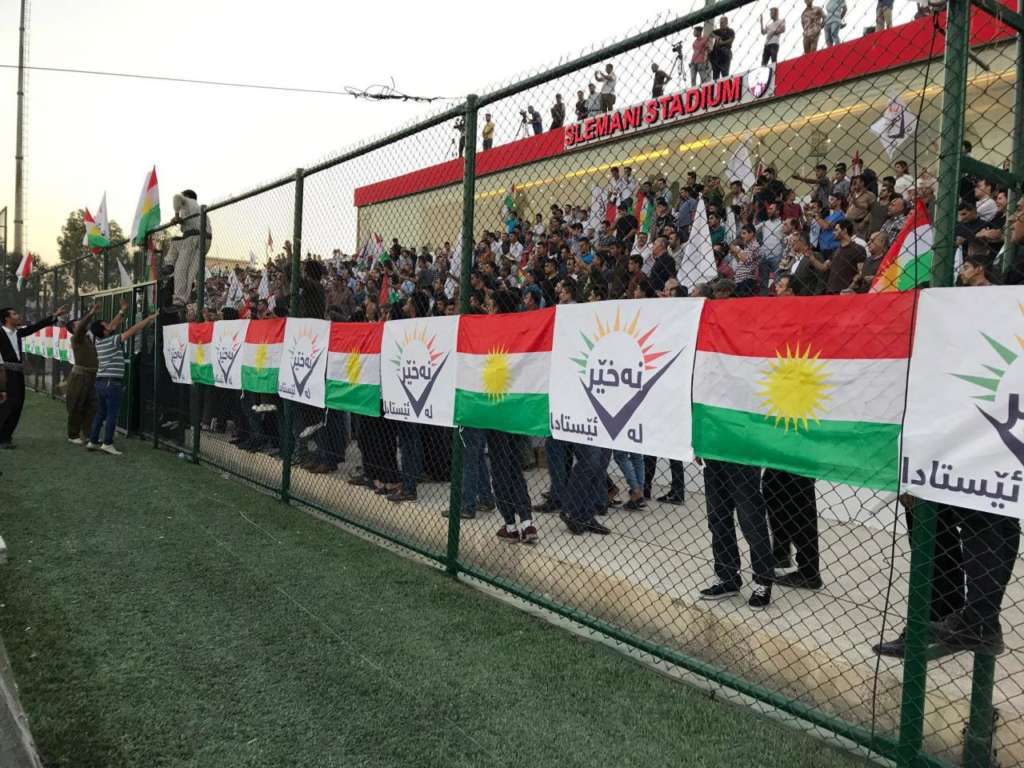Al-Sulaimaniya – Few days before the holding of the independence referendum in Iraq’s Kurdistan region, a Kurdish businessman is leading a “No for Now” campaign, fearing that the announcement of an independent Kurdish state would fuel tensions in the Middle East.
With five million Kurds in Iraq entitled to vote and share the dream of statehood, the outcome of the referendum on September 25 in the region of northern Iraq is already known.
However, some voters fear now is not the right time to break away from Iraq, amid concerns that such separation would bring about further chaos in the region.
A rich Kurdish businessman has launched a “No for now” campaign to explain the economic and political risks of a “Yes” vote.
“A ‘No’ vote is better for our people, better for Kurdistan’s future,” Shaswar Abdulwahid Qadir, 39, told Reuters after a rally on Saturday in a soccer stadium in Sulaimaniya, Iraqi Kurdistan’s second largest city.
He warned against the consequences of an independence declaration, saying: “It will bring to our people an unstable situation after the referendum.”
Qadir said his goal was not to resist independence forever. He explained, however, that a vote in favor of the referendum now would “unleash the wrath of governments” in Iraq, Iran, Turkey and Syria which could see it as a precedent that could encourage separatist-minded Kurds in those countries.
Reuters reported that during a rally in Sulaimaniya, the businessman was welcomed into the stadium by dancers in colorful traditional dress and by a crowd chanting his name.
But he preferred to delay the start by an hour to allow the stadium to fill up with supporters, which never happened, as around 2,500 people attended, occupying only one third of the arena.
Relations between Baghdad and Erbil saw a severe deterioration over the past years, culminating in a decision by the Iraqi government to cut funding to Iraqi Kurdistan in 2014 in protest at its construction of a pipeline to export oil to Turkey.
Such measures have fueled feelings of bitterness among the Kurds, who suffered under late Iraqi dictator Saddam Hussein.
However, several persons interviewed by Reuters in many cities across Kurdistan have expressed their concerns over the possible fallout of the referendum even though they favor independence.
“This referendum is not for the country, it’s for the dictators in power,” said Ahmed Nana, a 22-year-old barista at a coffee shop in Sulaimaniya, as quoted by Reuters.
“Nothing has polarized Kurdish society as much as this vote,” said Bahra Saleh, an analyst at the American University of Iraq in the Kurdish city.
